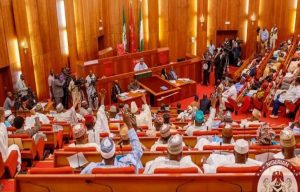
Streamlining Revenue Collection and Controversy…
In a significant legislative move, the Nigerian Senate has passed President Bola Tinubu’s Tax Reform Bills for second reading, marking a potential overhaul of the nation’s tax administration framework. The bills aim to simplify taxation, reduce burdens on small businesses, and address revenue disputes while fostering transparency and efficiency in tax collection.
Senate Majority Leader Opeyemi Bamidele championed the reforms, emphasizing their potential to eliminate double taxation and enhance revenue distribution. “The reforms propose a fairer value-added tax (VAT) allocation, with 55% designated for state governments, and introduce core tax statutes to unify the system,” Bamidele explained.
The four bills under consideration include:
1. Establishment of the Joint Revenue Board, Tax Appeal Tribunal, and Office of the Tax Ombudsman to harmonize revenue administration and resolve disputes.
2. Replacement of the Federal Inland Revenue Service Act with the Nigeria Revenue Service Act, granting broader powers for revenue assessment and collection.
3. Provisions for consolidated revenue assessment and taxation across federal, state, and local governments.
4. Repeal and consolidation of existing tax laws into the Nigeria Tax Act, streamlining tax obligations on income, transactions, and instruments.
Despite broad support, the reforms sparked debate. Senator Ali Ndume voiced concerns about constitutional conflicts and procedural gaps, citing opposition from key stakeholders, including the Nigerian Governors’ Forum and traditional leaders. “While the reforms are necessary, they require constitutional amendments and alignment with due process,” Ndume argued.
Counterarguments came from Senator Tahir Monguno and others, who asserted that any adjustments could be addressed during public hearings. Senate President Godswill Akpabio facilitated the debate and ultimately secured approval through a voice vote, underscoring the Senate’s commitment to refining Nigeria’s tax landscape.
The proposed reforms represent a paradigm shift in Nigeria’s tax administration. However, their successful implementation hinges on resolving stakeholder concerns and addressing constitutional questions. The coming weeks, including public hearings, will be crucial in shaping the final outcome of these landmark bills.

